Glossary – Letter O
Odd lot
A number of shares equalling less than a board lot, the regular trading unit decided upon by the particular stock exchange. Also, an amount less than the par value of one trading unit on the over-the-counter market.
Of record
Shareholders of record are those who appear on the company’s books or records as of a certain date. If, for example, a company announces that it will pay a dividend to shareholders of record January 15, every shareholder whose name appears on the company’s books on that day will be sent a dividend cheque from the company.
Off-the-board
This term refers to transactions made over-the-counter in unlisted securities, or in a special situation, to a transaction involving a block of listed stock which is not executed on a recognized stock exchange.
Offer
An offer is the same as an ask, which is the lowest price at which a person is willing to sell a security. (This is opposed to a bid, which is the highest price at which a person is willing to buy a security.)
Offering document
A document that offers securities for sale, including an offering memorandum or a prospectus.
Offering memorandum
A document that describes the business of an issuer prepared by the company itself. This is a legal document about the investment that must contain specific information, including a detailed explanation of the company’s business, its audited financial statements, the risks of the investment, and how the company plans to use the money it raises from investors. An offering memorandum helps potential buyers make an investment decision on exempt-market securities.
Ombudsman for Banking Services and Investments (OBSI)
An independent Canadian body that investigates complaints from individuals and small businesses about products and services provided by banks and investment and mutual fund dealers. Its objective is to provide impartial and prompt resolution of complaints. This service is free of charge; however, one must first try to resolve complaints directly with the bank or dealer before contacting the OBSI.
Open market operation
Discretionary Bank of Canada intervention in the domestic securities market.
Note: Since 1995, such transactions have involved mostly special purchase and resale agreements and sale and repurchase agreements.
Open order
An order to buy or sell a security at a specified price which is valid until executed or cancelled.
Open outcry
Verbal bids and offers made on the trading floors of stock exchanges. This method of public auction is disappearing as stock exchanges become automated.
Open-end / Mutual Fund Investment Company
This is a company which uses its capital to invest in other companies. Open-end, or mutual funds, sell their own new shares to investors, buy back their old shares, and are not listed for trading on a stock exchange. Open-end funds get their name because their capitalization is not fixed and they normally issue more shares as people want them.
Open-ended mutual fund
An open-end mutual fund continuously issues and redeems units, so the number of units outstanding varies from day to day. The value of their shares, or units, changes with the underlying value of the securities in the fund. Each share or unit represents a portion of the underlying portfolio.
Option
An investor who purchases an option has the right, but not the obligation, to buy or sell certain securities at a specified price within a specified time. A put option gives the holder the right to sell the security. A call option gives the right to buy the security.
Option eligible securities
Securities which meet the eligibility criteria as underlying securities for put and call options on a stock exchange.
Option holder
The buyer of either a call or put option.
Option premium
This is the price of an option. It is the amount of money that the option holder pays for the rights and the option writer receives for the obligations granted by the option.
Option writer
The seller of either a call or put option. The option writer receives payment, called a premium, and is obligated to buy or sell the underlying security at a specified price, within a certain period of time, if called upon to do so.
Out-of-line
A security which appears to be selling too low or too high in relation to comparable issues.
Out-of-the-money option
A call option is out-of-the-money if its exercise or strike price is above the current market price of the underlying security. A put option is out-of-the-money if its exercise or strike price is below the current market price of the underlying security.
Outstanding shares
Securities that have been issued and sold to shareholders are referred to as outstanding.
Over-the-Counter (OTC)
A securities market made up of dealers who make trades over the telephone and/or computer. It is also called “unlisted market,” “street market” and “between or inter-dealer market.” Almost all bonds and debentures, as well as some stocks, are traded over-the-counter in Canada.
Overnight market; Overnight money market
A market in which participants with a temporary surplus or shortage of funds are able to lend or borrow until the next business day. It is the shortest term to maturity in the money market.
Note: The level of interest rates in the overnight market has always been closely linked to the Bank of Canada’s monetary policy operations.
Overnight rate, Overnight financing rate, Overnight lending rate
Also referred to as the overnight financing rate or the overnight lending rate, this is the rate at which major participants in the money market borrow and lend one-day funds to each other.

